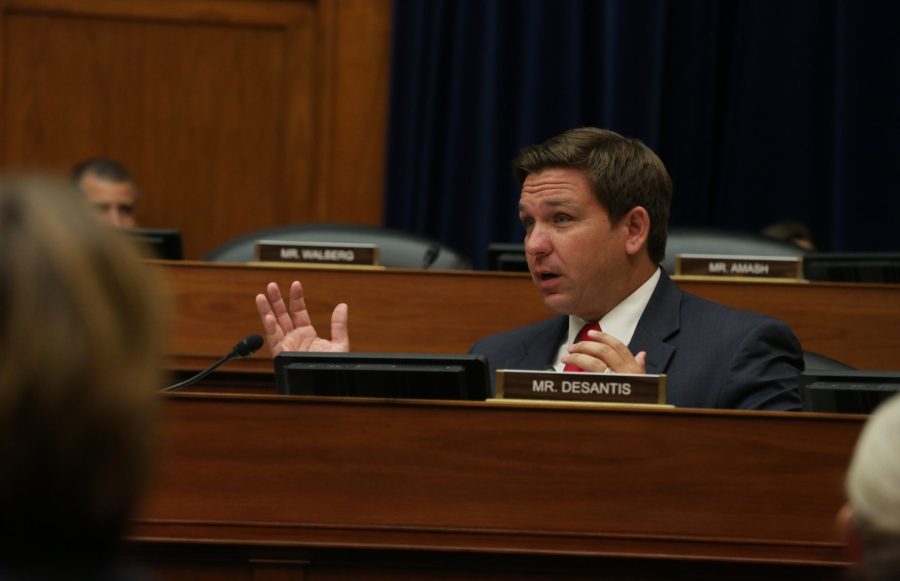Op-Ed: Florida’s Bills are Unacceptable
Florida Governor Ron DeSantis.
Florida’s bills are unacceptable.
On April 3, Governor Ron DeSantis, signed House Bill 543. It states that residents do not need a permit to carry arms. It is not going into effect until July 1, but when it does, there is no doubt that the number of gun deaths in Florida will spike.
In Florida alone, there have been thirteen mass shootings this year. In the thirteen mass shootings, 22 people have been injured and 59 people died. Passing this bill is one of the most unadvised things DeSantis has done. The last thing America needs is relaxed gun laws.
Just to skim the top of the iceberg, here are three other bills that DeSantis recently signed.
House Bill 1467 states that all books in classrooms have to be reviewed by a district employee to make sure they are free of pornography, certain race-based teachings, or other “touchy” subjects.
It is understandable that parents might not want their children exposed to books that contain pornographic material in a classroom setting. However, the censorship of books that discuss race, particularly those that do not portray white people as the “good guys,” is problematic.
Censoring books that discuss race in an honest, direct way creates an environment where children might not understand the complexities of race and racism, or appreciate their own potential privilege. It also contributes to a culture of censorship, where difficult topics are avoided or dismissed.
House Bill 1557, also called the “Don’t say gay bill,” originally prohibited classrooms from discussing sexual orientation and gender identity.
Not letting children learn about sexual orientation and gender identity is especially problematic for LGBTQ+ children. Many children in the community do not feel comfortable discussing their identity with their parents and teachers and may feel even more isolated when their identity is not allowed to be talked about in the classroom. The mere act of prohibiting the act of speaking about LGBTQ+ issues demonstrates to the school children that these issues are bad.
Censoring books that discuss LGBTQ+ identity can lead to the erasure of queer people, and can contribute to a culture of homophobia, biphobia, and transphobia. By teaching kids about different identities in the LGBTQ+ community, in a respectful, positive way, peers may learn to accept and understand queer identities and become allies.
House Bill 1069 states that students are not allowed to learn about their menstrual cycle, which denys students the right to learn about their own bodies. This makes me wonder what message schools are trying to spread to young girls who want to learn about their bodies.
Not letting children learn about the menstrual cycle is absolutely detrimental. Menstruation is a natural, normal part of life, yet it is still taboo in many cultures. By censoring books that discuss menstruation, children are not only missing out on important information about their bodies, but it can also contribute to a culture of shame and embarrassment around periods.
Censoring books about menstruation can make it difficult for children to talk openly about their periods. By discussing the menstrual cycle in a positive, respectful way in the classroom, children can learn to understand and accept their bodies.
Certain topics should not be banned from the school curriculum, since they are important for kids to learn about. Topics such as evolution, sex education, and the LGBTQ+ community are vital for students to understand, both in terms of their personal development and preparation for the future. Banning the discussion of critical race theory is detrimental to understanding race and racism in our society.






















































